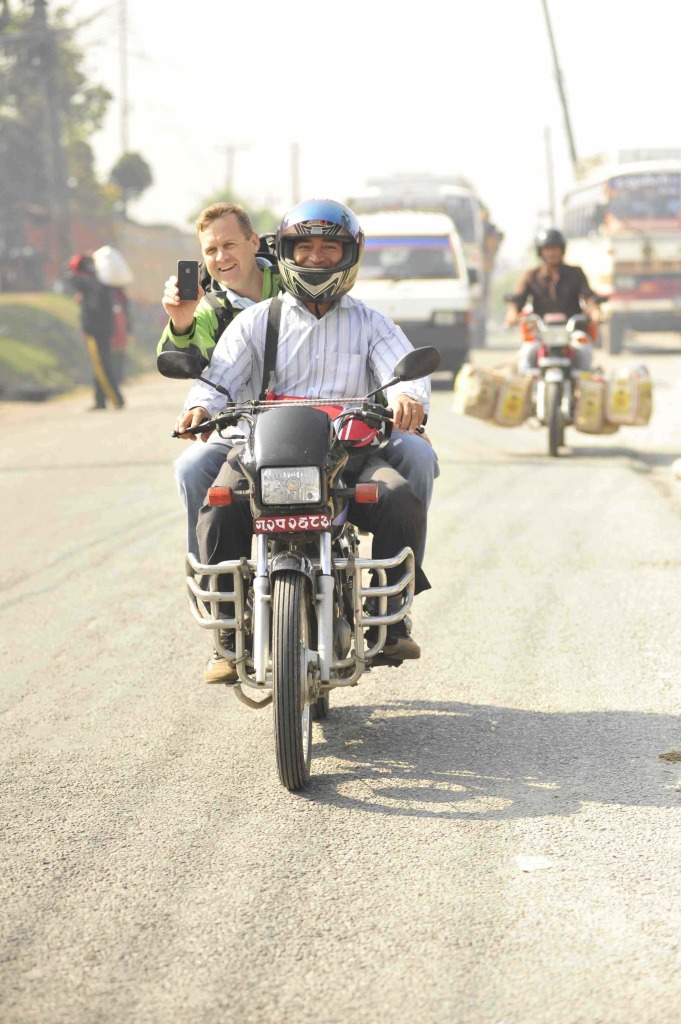The place God calls you to is the place where your deep gladness and the world’s deep hunger meet.
― Frederick Buechner, Wishful Thinking: A Theological ABC
 Youth + International = Authentic Missiology
Youth + International = Authentic Missiology
Crossing into other cultures (and subcultures) often raises questions. This is good for our theology. Theology is simply asking questions and seeking the answers to those questions in the Bible. Engaging in relationships with people across ethnic and geographic boundaries forces us to use our energy to think authentically about theology. I find this especially true among young people internationally. They have keen insights if we take the time to ask them. Relevant local theological development begins to happen when we engage in cross cultural missions. We discover new questions and we have to go to the Bible to search for answers.
For example, if you look at the past 10-15 years of evangelism among youth in Nepal, local youthworkers would tell you that it has actually been fairly easy and fruitful so far. But the process of helping them to grow in faith is very difficult. If a parent discovers that there child has become a Christian, they can become very angry. They may even stop their child from going to church forever.
Nepalese youthworkers wrestle with what they can do about this problem. At the root of the issue is that there is a practice in Hindu culture whereby once a father or mother dies, their offspring must observe “Kiriya,” which is a showing of bereavement. The child must refrain from eating food and salt for 13 days with their hair shaved. The false belief is that only by their child performing this ceremony will their parents go to “heaven”. One of the greatest concerns of the Hindu parents is that they will not have any one to observe Kiriya for them after death. This is why they may feel compelled to prohibit their child from involving themselves in a Christian community. In some cases, when the child becomes a Christian, the parent expels them from home and in turn, they not allowed to partake in their parents property. Wrestling with case studies and questions like this is authentic missiology.
What does it mean to “honor your parents” in this situation? What does loyalty to Jesus look like for a young person who is expected to ceremonially intercede for their parents?
RELATED: Questions Leaders Ask That Everyone Else Around You is Thinking
Wrong Assumptions Stifle Missionary Innovation
A big problem which stifles effective mission is that people tend to assume that the questions they have in their own culture are the same ones everyone else around the world is asking. Yet, when we cross over into another culture, we find that people have different issues and questions that they wrestle with. For example, in India and Nepal, one of key questions for Christians is whether they are allowed to eat food sacrificed to idols. Yet when we look at some of the most referenced theology books in the West, these questions are hardly ever addressed. This is probably because they are not questions or issues that are important to Western culture (where most theological books are published).
RELATED: 7 Surprising Insights Among the World’s Youth
Today, what we need is cross cultural leaders who are sensitive to other people’s questions. This will escalate our ability to help find applications and answers to theological questions in various mission contexts. A lot of time is wasted when we make bad assumptions and project on other people what we believe are their questions and problems when actually they are not. I believe in the coming years as the church intentionally shares resources (people and resources) across cultures we will see a rise in theological publications sprouting up in every culture.
For example, next month I am helping launch the Nepal Institute of Youth Ministry. This team effort in equal partnership with local Nepalese youth workers will help the next generation of local catalytic youthworkers develop theological tools to tackle the pressing issues of their own culture. By investing in indigenous leadership we become an equal partner, giving and receiving equally as we stack hands on creating an environment of authentic missiology.
Here’s How You Can Change the World:
-
What are your top three questions you are wrestling with at this moment in your life?
-
Try to find someone in your community from another culture (or subculture) and ask them what their top three questions or problems are.
-
What might result if you spent 30 minutes searching for answers to your top three and their top three theological questions? See what happens.
